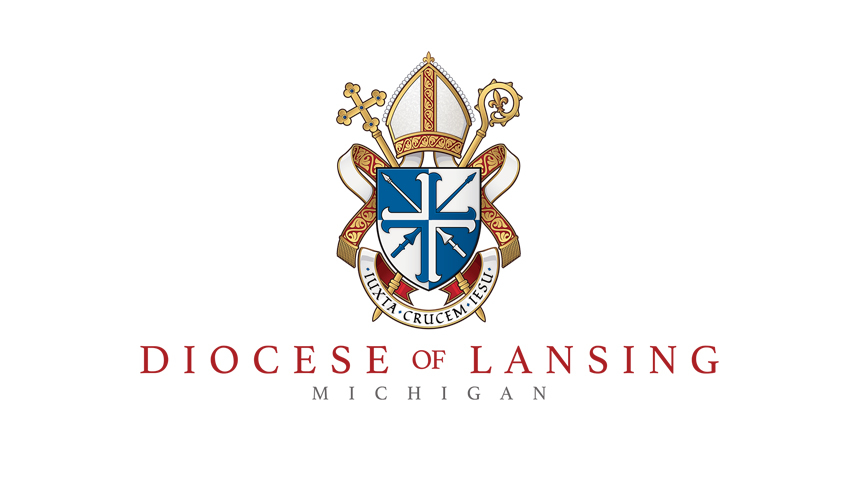
The Diocese of Lansing has unveiled the names of a new independent lay board who will assist the diocesan bishop in assessing allegations of clerical misconduct.
“We are delighted by the diversity of expertise and experience which these seven newly-appointed members of the Code of Conduct Advisory Council possess – and we thank them for their faithfulness and generosity in serving the Church in this important way,” said General Counsel for the Diocese of Lansing, Will Bloomfield, February 14.
Bishop Earl Boyea of Lansing first announced his intention to create the new Code of Conduct Advisory Council in September 2019. The new body is an independent lay board that will review allegations against clerics of various forms of misconduct, including violations of the diocesan Code of Conduct, Canon Law, the diocesan Employee Handbook, and other diocesan policies.
Allegations will be investigated and then referred to the Council. The Council will assess the allegation and advise the Bishop regarding possible consequences.
The Diocese has long had a Review Board that reviews allegations of clerical sexual abuse regarding minors. The new Advisory Council has been erected to assist the Bishop in responding to allegations of all other clerical misconduct.
Nominations to the new Advisory Council were solicited form throughout the Diocese of Lansing with a particular request for applications from those with expertise in law enforcement, law, psychology, social work, and other leadership roles. Many nominations were submitted, and now the following seven individuals have been appointed:
Therese Cirner MA, LPC (Chair)
Private Practice, Counseling
Rusty Chavey, MD, MS
Associate Professor, Service Chief, Department of Family Medicine, University of Michigan
President and Founder, Emmaus Health
Al Kresta
President and CEO, Ave Maria Communications
Philip Schertzing, Ph.D.
Retired Inspector, Michigan State Police
Assistant Professor Emeritus, Michigan State University School of Criminal Justice
Brian Garred, M.Ed.
Educator, Father Gabriel Richard High School, Ann Arbor
Reserve Officer (Former), Napoleon Township Police Department.
Katrina Iamarino, JD
Former Supervisory Investigator, Office of Children’s Ombudsman for the State of Michigan
Dawn E. Ritter, LMSW
Program Manager, Michigan Department of Health and Human Services
At present, the Diocese of Lansing has a series of policies and standards establishing the high standards of conduct expected of all who corporately represent the Church in parishes, schools or other diocesan apostolates. The Diocese regularly reviews and updates these policies, and the new Advisory Council will assist in reviewing and revising these policies, policies which include the Code of Conduct and the General Norms of Pastoral Conduct. With the assistance of the Advisory Council, the General Norms of Pastoral Conduct were updated on November 4, 2020.
The Code of Conduct, which is signed by all employees, volunteers and clergy, including the bishop, expects all signatories to exemplify the moral teachings of the Catholic Church in their personal and professional lives by “growing in virtue and holiness”. It also prohibits sexual harassment and other sexual misconduct. Both documents expect those covered by them to maintain appropriate boundaries with those they work with or serve.
Employed staff and clerics are also subject to the Employee Handbook, which likewise prohibits sexual harassment, boundary violations, and other forms of misconduct. Moreover, clerics are governed by the Code of Canon Law, the internal law of the Church, which binds clerics to their vow of celibacy.
* Allegations of misconduct can be made to the Diocese through the Diocesan Victim Assistance Coordinator at (888) 308-6252 or vac@dioceseoflansing.org, or by contacting other Diocesan personnel.
The Diocese of Lansing is committed to cooperating with law enforcement and supporting victims of abuse. If anyone has reason to suspect physical, sexual or emotional abuse of any person of any age, please contact Protective Services or the police, as appropriate. If clerical abuse is suspected, contact the office of the Michigan Attorney General Investigation hotline at 844-324-3374. For healing and support, please also contact the Diocesan Victim Assistance Coordinator at (888) 308-6252 or vac@dioceseoflansing.org.
